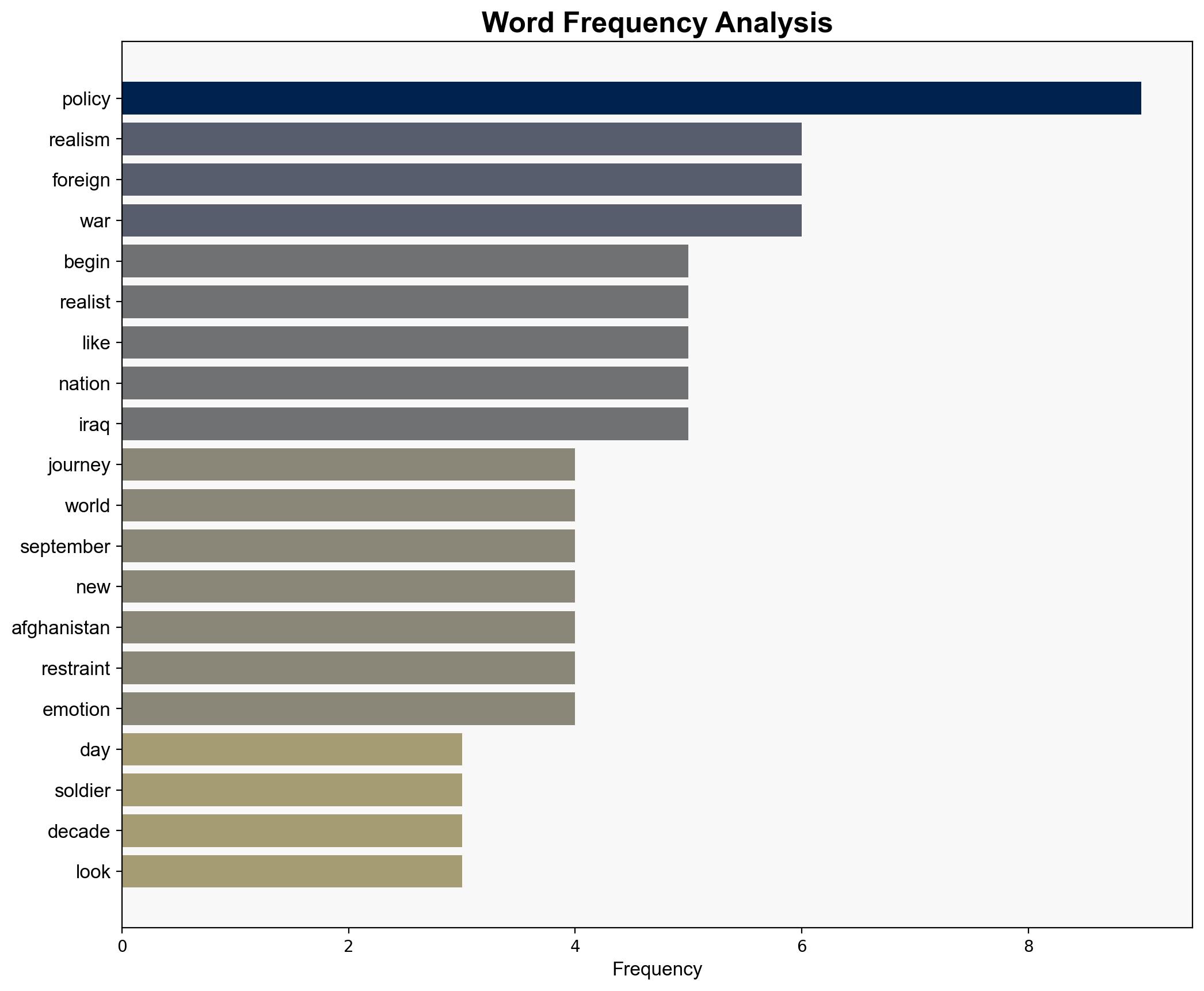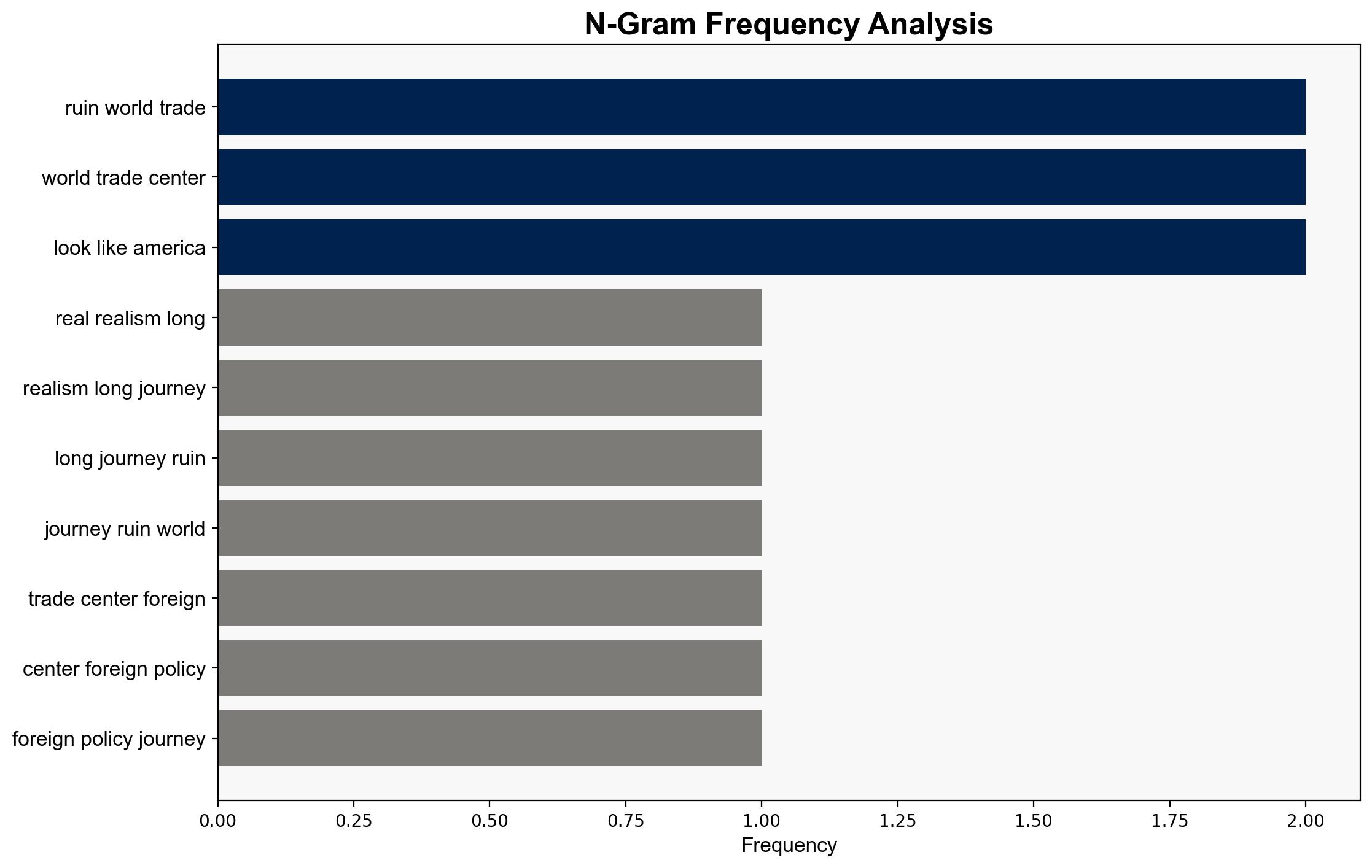911 and the Real Realism – The American Conservative
Published on: 2025-09-11
Intelligence Report: 911 and the Real Realism – The American Conservative
1. BLUF (Bottom Line Up Front)
The analysis suggests a moderate confidence level in the hypothesis that U.S. foreign policy post-9/11 has been characterized by overreach and misapplication of realist principles, leading to strategic failures. The recommended action is to reassess current foreign policy strategies with a focus on restraint and realistic engagement, avoiding emotional and reactionary decisions.
2. Competing Hypotheses
1. **Hypothesis A**: U.S. foreign policy post-9/11 represents a misapplication of realist principles, characterized by overreach and strategic failures in Afghanistan and Iraq.
2. **Hypothesis B**: U.S. foreign policy post-9/11, while flawed, was a necessary response to unprecedented threats, and the failures are due to execution rather than strategic conception.
Using ACH 2.0, Hypothesis A is better supported by the evidence of ongoing instability in Afghanistan and Iraq, the unrealistic goals of nation-building, and the emotional motivations driving policy decisions. Hypothesis B lacks support due to the consistent pattern of strategic misjudgments and the failure to achieve long-term stability.
3. Key Assumptions and Red Flags
– **Assumptions**: Hypothesis A assumes that realism should prioritize restraint and that emotional responses led to policy failures. Hypothesis B assumes that the initial strategic goals were sound but poorly executed.
– **Red Flags**: The narrative may be biased by personal experiences and emotional responses, potentially skewing the analysis towards a more critical view of U.S. policy.
– **Blind Spots**: The analysis may overlook successful aspects of U.S. foreign policy or the complexity of geopolitical dynamics post-9/11.
4. Implications and Strategic Risks
The continued application of flawed strategic principles could lead to further geopolitical instability, economic strain, and diminished global influence. A failure to adapt could result in increased anti-American sentiment and emboldened adversaries. The psychological impact on military personnel and the public could also exacerbate domestic divisions.
5. Recommendations and Outlook
- **Mitigate Risks**: Reevaluate current foreign policy strategies with a focus on restraint and realistic engagement. Avoid emotional and reactionary decisions.
- **Exploit Opportunities**: Strengthen alliances through multilateral diplomacy and focus on non-military solutions to global challenges.
- **Scenario-Based Projections**:
- **Best Case**: Adoption of a restrained foreign policy leads to improved global stability and stronger international partnerships.
- **Worst Case**: Continued strategic missteps result in further geopolitical instability and weakened U.S. influence.
- **Most Likely**: Gradual policy adjustments lead to moderate improvements in global perception and strategic outcomes.
6. Key Individuals and Entities
– Barry Posen
– Robert Jervis
– Kenneth Waltz
– Stephen Walt
– Barack Obama
– Donald Trump
7. Thematic Tags
national security threats, cybersecurity, counter-terrorism, regional focus




